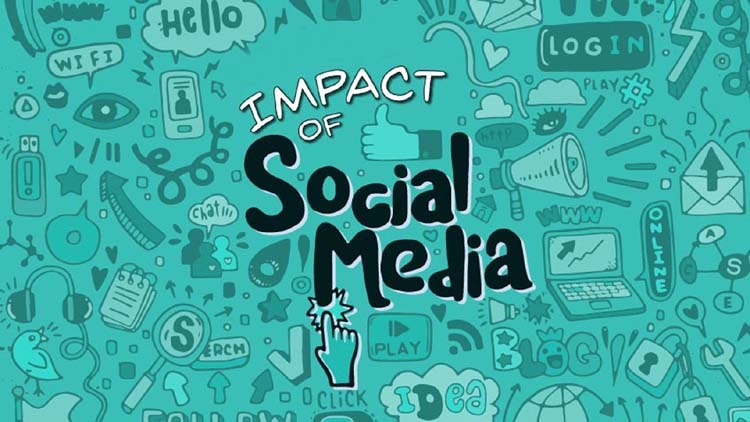The impacts of social media on the public -The Asian Age

Different social media such as Facebook, Twitter, and YouTube have changed public views about politics, social life, love affair, and the central tenet of religon. People are more involved in social media expressing their opinions than the traditional media where once they used to do.
They look for solutions to their problems in social media, and sometimes, they find some solutions and solaces concerning their problems. They express their opinions and get engaged in debating with others if they have alternative opinions than the others. Thus, they gain a lot of knowledge and change their mindsets on various issues.
Almost everything is discussed on social media. But the two most popular topics discussed on social media are politics and religion. More arguments take place surrounding the two topics because different social media such as YouTube get public many proofs and new information about the two topics, so the debaters on social media challenge the religious teachings and political dogmas.
The influences of social media have more positive impacts on our lives than the negative ones. The folks who use social media get involved in arguments with other people. Sometimes, they challenge each other's opinions and express their own opinions about the burning issues.
If active social media usurers see anomalies or unfair things happening in the society, they get the incidents video recorded and circulate them on social media, that organize the public opinions and the concerned authorities take appropriate actions against the perpetrators.
Social media is a powerful tool in every country irrespective of it being a democratic or an undemocratic society. A rogue regime always keeps an eye on its dissents and opponents on social media so that it can crack down on them who try their best to oust the regime. The traditional media is always controlled by an undemocratic government, so the opponents organize protests contacting each on social media networking.
The political analysts gave credits to social media such as Tweeter, WikiLeaks, and YouTube for the uprising, revolution, and ouster of Ben Ali, a dictator of 29 years, who was ousted by the protesters in their 29 days uprising in Tunisia in 2011 when WikiLeaks had revealed the extravagant life of the then ruling family.
Social media played a great role in helping the protesters whose some of the Facebook accounts being deleted for organizing the protests against Ben Ali. Ultimately, he could not save his regime and escaped to Saudi Arabia. This Arab uprising was spread to other Arab countries including Egypt and Libya where protesters used social media networking against the dictators.
In a democratic society, social media is a great tool for changing public opinions about things that impact their lives. Social media is used for political purposes by the politicians and their supporters. Social media like Twitter and Facebook, the public can follow the politicians to know what they are thinking and what they will be doing once they get elected to the office. Some political parties' hired writers write fake news to influence the voters. Facebook always try to delete any misinformation and fake news once they are detected but they continue unabated.
Religious leaders also use Facebook and tweeter to reach their followers to let them know about their fundamental tenet and practices and be spread to other people. Some Islamic scholars opine that Muslims youngsters are engaged on social media networking without concentrating on religious studies and end up being able to renounce Islam. So, some religious leaders and maulana offer online lessons on the Koran and Hadith to Muslim children.
And yet the ultraconservative societies have been on the verge of collapse, where young Muslims have been ending up being atheists and agnostic, which was unimaginable a decade ago in the Middle Eastern and South Asian countries. The ideas of atheism and secularism on the rise even in the ultra-conservative country like Saudi Arabia and other Arab countries where social media is available for them.
Not long ago, Saudi Arabia passed a royal decree depicting all atheists are terrorists and terrorists just get executed in the kingdom, and yet atheists and abused Saudis try to get out of the kingdom when they get a chance. Recently, a Saudi teen Rahaf al-Qunun gathered 114,000 Twitter followers and sparked the #SaveRahaf with a series of tweets and videos, in which she said she renounced Islam and fleeing her abusive family. Later, she was granted asylum in Canada.
Facebook and Twitter users propagate for their own political parties and influence voters' minds to vote in favour of their respective parties. The political supporters influence voters' opinions about the candidates. It was known that the North American political leaders who are connected to social media get more donations online. The US president Donald Trump and Canadian Prime Minister Justin Trudeau are the two avid users of Twitter.
Lovers are also engaged on social media such as What's Up and Facebook messengers. Sometimes, it is heard that the Western women come to South Asian countries like India, Bangladesh, and Pakistan after romantic love affairs.
The writer, a Bangladeshi
freethinker, is based
in Toronto, Canada
The writer, a Bangladeshi
freethinker, is based
in Toronto, Canada
